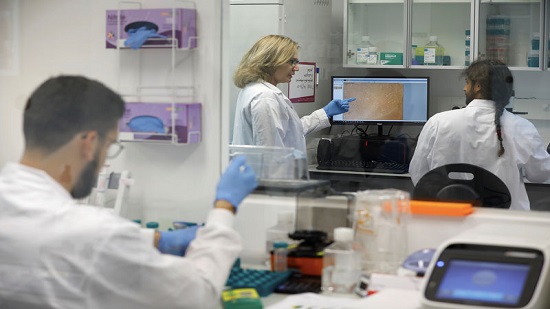REHOVOT, Israel (Reuters) – Diners in some upmarket restaurants will soon be able to tuck into laboratory-grown steak, thanks to an Israeli startup that seeks to tap into consumer concerns about health, the environment and animal welfare.
While lab-grown hamburgers and chicken are already in development around the world, Israel s Aleph Farms claims to be the first company to have developed steak in a laboratory and is in talks with some high-end restaurants in the United States, Europe and Asia to have it on the market in 2021.
It plans initially to offer minute steak developed from a small number of cells taken from a cow, avoiding the need to slaughter the animal in the process or use antibiotics which can be harmful to meat eaters.
Aleph Farms hopes to have its product on a limited number of restaurant menus from 2021 in a trial phase, aiming for an official launch in 2023, first in restaurants and then in stores.
Its next product will be a thick steak with “the properties that we like and we all know,” said Neta Lavon, vice president for research and development.
A serving of its minute steak – a thin slice of meat that cooks very fast – currently costs around $50 but Aleph Farms says it hopes to bring that down by 2021 to only a slight premium to current prices of steak offered in restaurants.
Eventually it aims for mass production, bringing the price down further and making its steaks viable for sale in lower-priced steak houses.
Didier Toubia, co-founder and CEO of Aleph Farms, said the company has ambitions to be one of the world s top three meat producers within 20 years, challenging market leaders like Tyson Foods, which has invested in another Israeli start-up developing cultured meat, Future Meat Technologies.
Toubia, however, did not give a revenue target for its product.
He set up the company in 2017 in partnership with Technion – the Israel Institute of Technology and foodmaker Strauss Group s incubator The Kitchen. In May it raised $12 million from investors including Cargill [CARG.UL], and has now raised $14 million to date.
Demand for traditional meat substitutes is growing and analysts estimate the U.S. plant-based meat market, for example, could be worth $100 billion by 2035.
The number of start-ups producing laboratory-developed meat has risen from four at the end of 2016 to more than two dozen by last year, according to market researcher the Good Food Institute.
Dutch start-up Mosa Meat projects the cost of producing a hamburger will be about 9 euros ($10) once production scales up.



